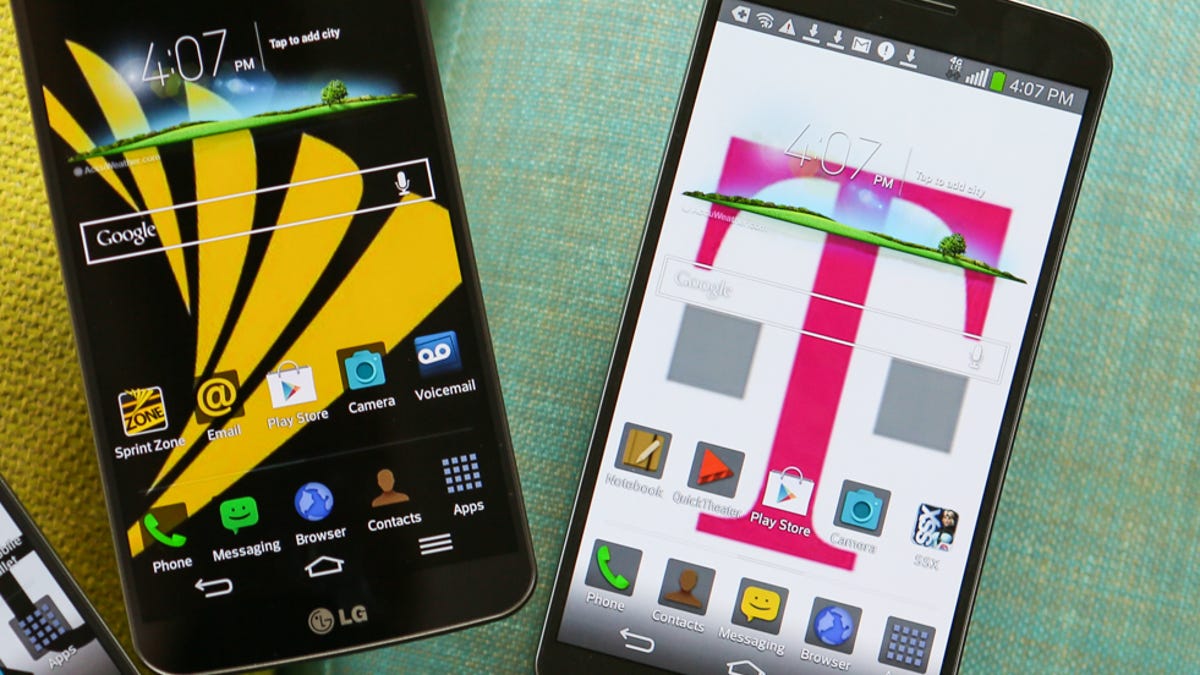T-Mobile-Sprint deal faces even more wrinkles, thanks to Dish
The complicated merger seemingly has found another twist.

T-Mobile's merger with Sprint took another turn Friday.
Will Dish be the savior to T-Mobile and Sprint's $26 billion merger? It depends on which report you want to believe.
After recently being rumored to have interest in swooping up the assets T-Mobile and Sprint would divest, on Friday the New York Post reported that Dish CEO Charlie Ergen could be "months away" from completing the deal. By combining the divested assets with spectrum that Dish has accumulated through the years, Dish would be in a position to potentially become a new fourth wireless carrier to replace Sprint.
While this would help the Department of Justice allay antitrust concerns, thereby giving T-Mobile the merger it wants, the new report claims that Ergen may wait to try to get a better deal from both T-Mobile and the DOJ.
The current rumored price for the divested assets is $6 billion, and Dish currently faces a March 2020 deadline to utilize the spectrum, or wireless airwaves, holdings it has built up or risk losing the license.
A different report Friday, tweeted by Fox Business Network's Charles Gasparino, says that Ergen is hoping to use his position to get an extension on the timeline to build out a 5G network. Gasparino says Ergen and the DOJ are in "final negotiations" for this deal, suggesting a closer timeline for completion.
SCOOP-@JusticeATR in final negotiations w @dish Chief Charlie Ergen on @TMobile @sprint assets purchase looking for 5G buildout guarantee for an extension on the timetable to buildout his unused spectrum. Also discussed: Penalties if Ergen fails to deliver more today @FoxBusiness
— Charles Gasparino (@CGasparino) June 21, 2019
Dish declined to comment on the reports when contacted by CNET. The Department of Justice did not immediately respond to a request for comment.
On a separate front, four additional state attorneys general -- Hawaii, Massachusetts, Minnesota and Nevada -- joined the multistate lawsuit brought by New York AG Letitia James and nine other AGs to block the deal on anticompetitive grounds. The total now stands at 13 states opposed to the deal, plus the District of Columbia.
"The merger of T-Mobile and Sprint would stifle competition, cut jobs and harm vulnerable consumers from across the country, so unity among the states will be key in defending our citizens against this power-hungry corporate union," James said in a statement. "We welcome the support from these four additional states, which should serve as a reminder that, all throughout the nation, we have much to lose if we do not take action to protect our people from this megamerger."
A tentative trial date of October 7 was set Friday, with the trial expected to go two to three weeks. That length, however, might change depending on how the DOJ rules.
NEW: 4 states are joining the multistate lawsuit to block the T-Mobile/Sprint merger: Hawaii, Massachusetts, Minnesota and Nevada. The companoes and the states have tentatively agreed on a trial date of Oct. 7 and expect it could last 2-3 weeks, though that depends on the judge.
— Brian Fung (@b_fung) June 21, 2019

